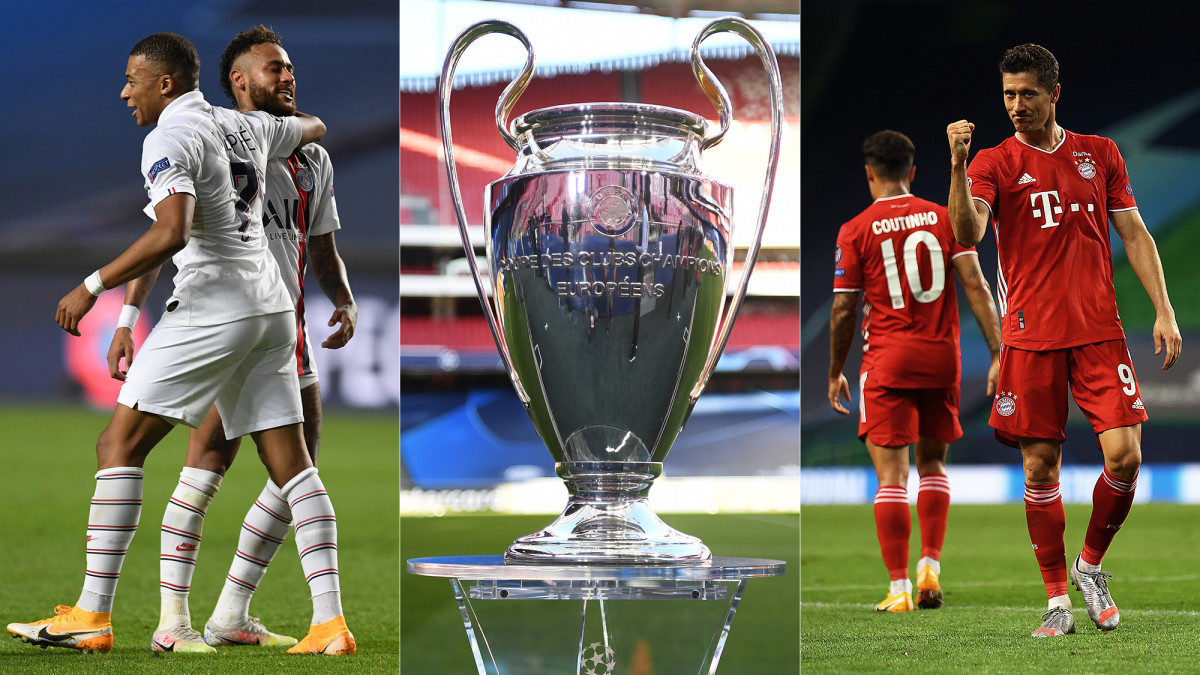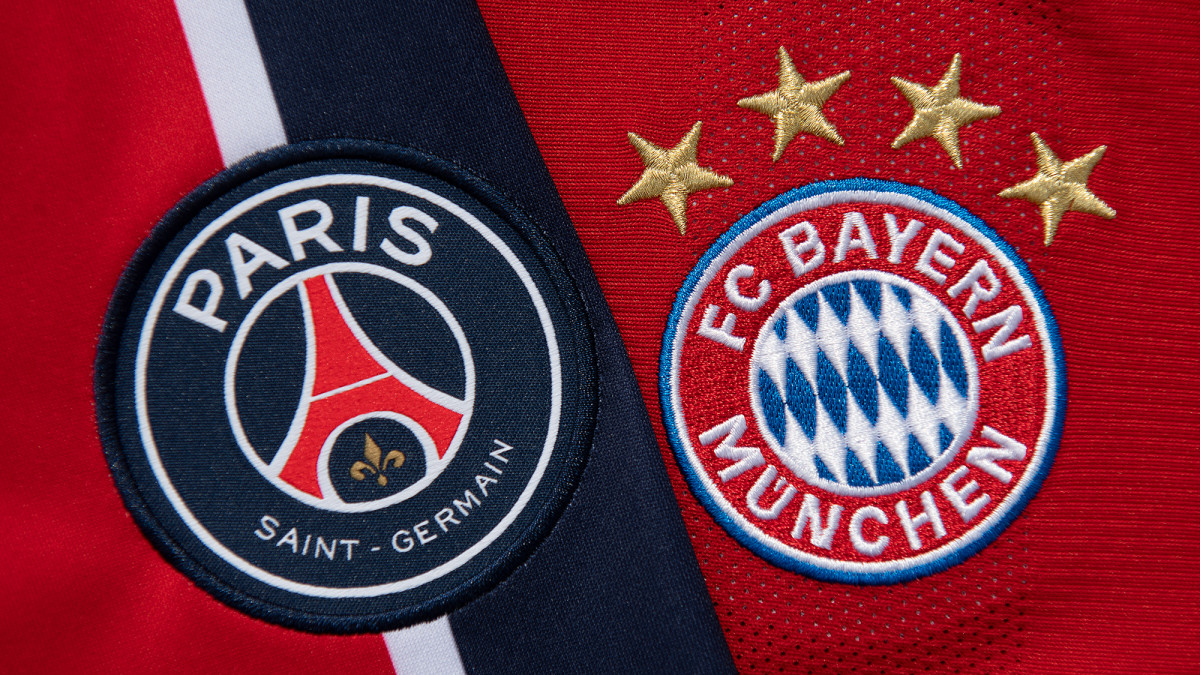A Superclub Champions League Final With All the Fixins–Even the Ugly Ones
The Champions League final will be a meeting of two superclubs, both of which have a very superclub way of playing. Both are used to dominating: Bayern Munich has won a domestic double, winning the Bundesliga and DFB Pokal titles. Paris Saint-Germain has won a domestic treble, claiming the Ligue 1 title and Coupe de France and Coupe de la Ligue trophies. Both are superb on the ball. Both attack with abandon. And both, unused to being properly and regularly tested, are defensively vulnerable. In that sense, this is the perfect modern final.
But Bayern and PSG are not the same. Bayern has won five European Cup/Champions League titles before. It has won eight Bundesliga titles in a row. It has won more Bundesliga titles than every other German club put together. It is a club that represents pure capitalism, ruthlessly exploiting its dominant market position to the extent that when it pillages its rivals for their best players, the reaction tends to be little more than weary resignation at the natural order of things.
PSG, though, represents something far more sinister. Founded in 1970 to try to give the French capital a team to compete with the might of Saint-Etienne, Marseille and Reims, it was taken over in 2011 by Qatari Sports Investments. It's a subsidiary of the Qatari Investment Agency, the body established by the Qatari state in 2005 to manage the emirate’s sovereign wealth fund. No less than Manchester City, PSG is nakedly an agent of soft power, part of a broader attempt to popularize and enhance the image of the state through sport–of which hosting the 2022 World Cup is the centerpiece.

And it is a state that desperately needs its image enhanced. The stadiums that will host the World Cup, as with the majority of construction projects in the country, have been built using migrant laborers who are often compelled to work in dangerous conditions at extremely low pay, unable to leave the country because of the kafala system of visa sponsorship. Allegations of torture are commonplace. Homosexuality is punishable by up to three years in jail. Women’s rights are limited. The press is restricted. There is no freedom of expression. Perhaps PSG fans don’t care who pays Neymar’s wages, but none of this should ever be normalized under the banal phrase “substantial Qatari investment.” PSG represents something very unpleasant indeed. Not that Bayern is without fault in this realm, having signed a major sponsorship deal with the state-run Qatar Airways in 2018 that has drawn the ire of its supporter base.
Initially, Qatari involvement with PSG led to a lot of expensive talent and not much cohesion. Star power may be enough to see off domestic opposition. There had never been a domestic treble in France until six years ago; since then, PSG has won four. Anything resembling competitive balance in French football has been devastated as part of Qatari foreign policy.

But PSG had a tendency to falter in the face of the first real challenge it faces in Europe. Even in the quarterfinal against Atalanta last week, it seemed shaken by the notion of being pressed in the early stages. To reach a Champions League final playing Borussia Dortmund, Atalanta and Leipzig–the latter two have never won their domestic championship and Dortmund has not since 2012–in the knockout stage is a relatively straightforward path. But, nonetheless, there have been signs of improved cohesiveness under manager Thomas Tuchel.
Tuchel can be prickly and is far from universally popular at PSG. There have been political maneuverings against him. But his unflashy midfield of Marquinhos, Ander Herrera and Leandro Paredes has provided a platform for the front three of Neymar, Kylian Mbappe and Angel Di Maria. The latter has always been good at working back, but there were even signs against RB Leipzig in the semifinal of sustained pressing.
Whether that is enough against Bayern, the pressing masters, is another issue. It attacks in remorseless waves and has in Robert Lewandowski a forward who has scored 55 goals in 46 games across all competitions this season, including at least one goal in each of his nine Champions League appearances. Thomas Muller is playing as intelligently as ever, while Serge Gnabry’s first goal in the semifinal vs. Lyon was a characteristic blend of audacity, skill and explosive pace.
But in both quarterfinal and semifinal victories, Bayern showed defensive vulnerability, especially early on. Barcelona scored twice and hit the post. Lyon hit the post and squandered three other outstanding opportunities. The high line that facilitates the press inevitably carries a degree of risk. PSG’s forward line, Neymar's recent finishing woes notwithstanding, will not be as wasteful as Lyon’s was.
A team seeking a quadruple against a team seeking a treble. Two formidable attacking sides with defensive frailties. It is the perfect superclub contest. But never forget that while one of them is a very rich football club, the other is the propaganda arm of a human-rights abusing state.
